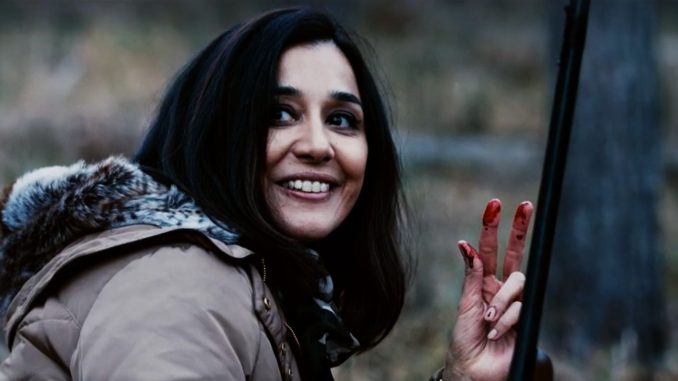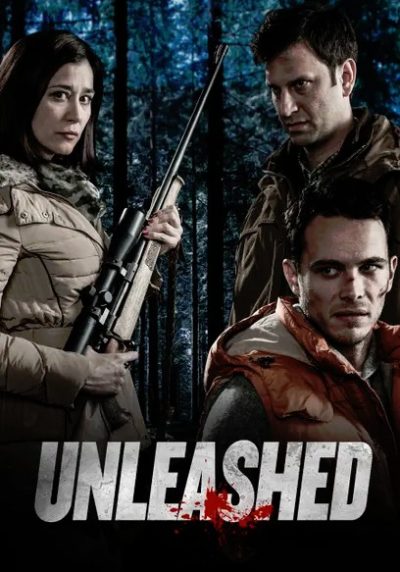
Rating: C
Dir: Áron Mátyássy
Star: Dorka Gryllus, Kornél Simon, Tamás Lengyel, Teréz Vass
a.k.a. Víkend
This takes place in the Hungarian countryside, where a trio of lawyers have opted to go for a hunting trip – never mind the fact it’s illegal. Leading the way is Márta (Gryllus) and her husband László (Simon), and she has a bit to celebrate. For Márta in in possession of a tape-recording, in which a high-level businessman can be heard attempting to bribe her to throw a case she’s defending, for his benefit. She’s using that as leverage against him, and he’s not happy about it. Making matters worse, the hunting trip goes awry when Márta shoots and kills one of the locals. She decides simply to leg it down off the mountain and pretend like it never happened, much to László’s disgust.
However, on their way out, their guide shows up, with the body in the back of his truck, and offers to take care of the situation for fifty thousand Euros. Márta accepts, only for this to start a series of dominoes toppling. The locals get involved, as more of their number start to turn up dead; the recording is stolen from Márta’s house; and old enmities and resentments start to bubble back up to the surface. The party gets split up, with one half being pursued across the mountainous landscape by irate residents, while the others… well, are not. Let’s leave it at that, though the peril they face is little if any less.
 It feels like there’s a few chunks of cultural context missing from this. While the general concept of urban white-collar versus rural blue-collar is likely going to be the same in Hungary as anywhere else, the details seem to be a bit different. There’s a wedding going on locally, and this gets more screen time than it appears to merit, which leaves me wondering if I was unaware of some aspects. On the other hand, the script does quite well in terms of nuance. It’s not “country folk = bad” or “city dwellers = evil”. If anything, it may be too nuanced. It’s hard to tell for whom you are supposed to be sympathetic. Márta is the obvious choice, yet for much of the film, she’s not what I’d call fun to be with. Probably a good lawyer though.
It feels like there’s a few chunks of cultural context missing from this. While the general concept of urban white-collar versus rural blue-collar is likely going to be the same in Hungary as anywhere else, the details seem to be a bit different. There’s a wedding going on locally, and this gets more screen time than it appears to merit, which leaves me wondering if I was unaware of some aspects. On the other hand, the script does quite well in terms of nuance. It’s not “country folk = bad” or “city dwellers = evil”. If anything, it may be too nuanced. It’s hard to tell for whom you are supposed to be sympathetic. Márta is the obvious choice, yet for much of the film, she’s not what I’d call fun to be with. Probably a good lawyer though.
Largely as a result, I think, I found myself disengaged from events as they unfolded. I was watching them happen, rather than being involved emotionally. I didn’t like many of the participants much: this might have been deliberate, and I get the sense Mátyássy didn’t like them much either. The split focus in the second half also feels a bit of a mistake. Too often, I found myself wondering what was going on elsewhere. No complaints on the technical aspects, and the scenery is pleasing to look at, whenever the pace lags. That I noticed this might not exactly be a good thing though. You may well be left feeling a little Hungary by this one.
